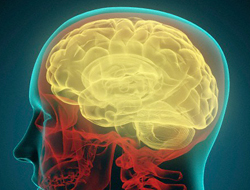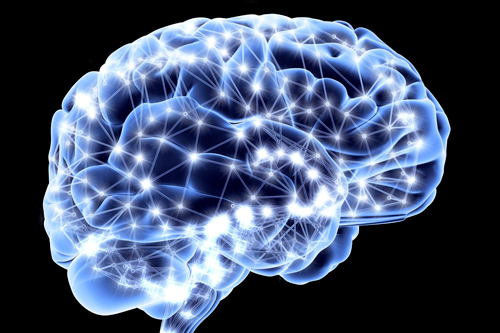
Everybody knows what it’s like to feel full. It’s an important sensation, preventing us from continuing to eat when there’s no vacancy beneath our belts. It has long been thought that feelings of satiety are caused primarily by hormones triggered by food in the digestive tract. Now scientists have discovered a more direct connection between the GI tract and the brain than that provided by hormones.
According to studies in mice conducted at Duke University, cells in the stomach lining once thought to be involved in hormonal release are very similar to neurons. These cells have finger-like projections that resemble axons, which carry efferent signals (those going out of neurons) and dendrites, which carry afferent signals (those coming into neurons). Labeling these projections “neuropods,” the researchers found that these cells were equipped to conduct signals through the nervous system.

Our brains depend on “good bacteria” in the gut to help regulate learning, memory, and mood. In fact, gut bacteria produce about 95% of the body’s serotonin, a neurotransmitter that directly influences mood. By proactively introducing the right bacteria into our guts, we may be able to deliver treatment for certain mood and anxiety disorders to our brains without the use of drugs.
They confirmed this neuronal connection by showing how single sensory neurons reached out to contact a neuropod when both were isolated in a dish, even when the neuropod was a great distance away (by microscopic standards). Additional investigation revealed that around 60% of the neuropods contacted sensory neurons. “The study supports the idea that there could be a real biology of gut feelings,” claims Diego Bohórquez, an assistant professor of medicine at Duke involved in the study. (Note: Findings in mice are more relevant to humans than one would expect, since their guts have certain cells that are strikingly similar to those in the human gut.)
The fact that the communications channel between brain and gut is a two-way street helps explain why merely thinking about food can cause hunger pangs—even if our bodies don’t need food—and why a stomach upset due to physical causes can quickly trigger feelings of anxiety in the brain.
Both Good News and Bad News Can Be Delivered via Neuropod
Direct synaptic transmission both in and out of the digestive tract can affect our health in a number of ways, both pro and con. Neuronal signals within the intestinal lining can alter our response to nutrients and bacteria within the intestine. The pathway provided by neuropods may also open up a route for viruses to travel to the central nervous system. This means that some viruses affecting the brain, such as rabies, might be transmitted via the neural pathway from the GI tract.
But this neuronal circuit may also provide opportunities for delivering beneficial therapy to the brain. If food in the digestive tract can affect the neuropods, it stands to reason that introduction of certain substances into the tract—especially beneficial bacteria—may affect the brain’s neurons in important ways. A dramatic study published in the journal Gastroenterology showed just how dramatic this effect can be. The researchers gave a strain of mice known for being timid a mix of antibiotics that had a major effect on the bacterial environment in the gut. The result: a transformation of the mice’s behavior from meek and hesitant to bold and adventurous.
We can expect future research findings to further bolster the status of the GI tract as the body’s “second brain.” Duke University scientists will certainly have more to tell us as they continue to map the entire path from gut to brain on this newly discovered neuronal pathway. This channel could become an important conduit for treating depression, anxiety, and other mood disorders…and maybe other conditions yet to be determined.
Click here to get inspired by Rose’s easy steps to positively change your mind
Post Disclaimer
This content is for informational purposes only and does not constitute medical advice. Please consult a healthcare professional for any medical concerns.


